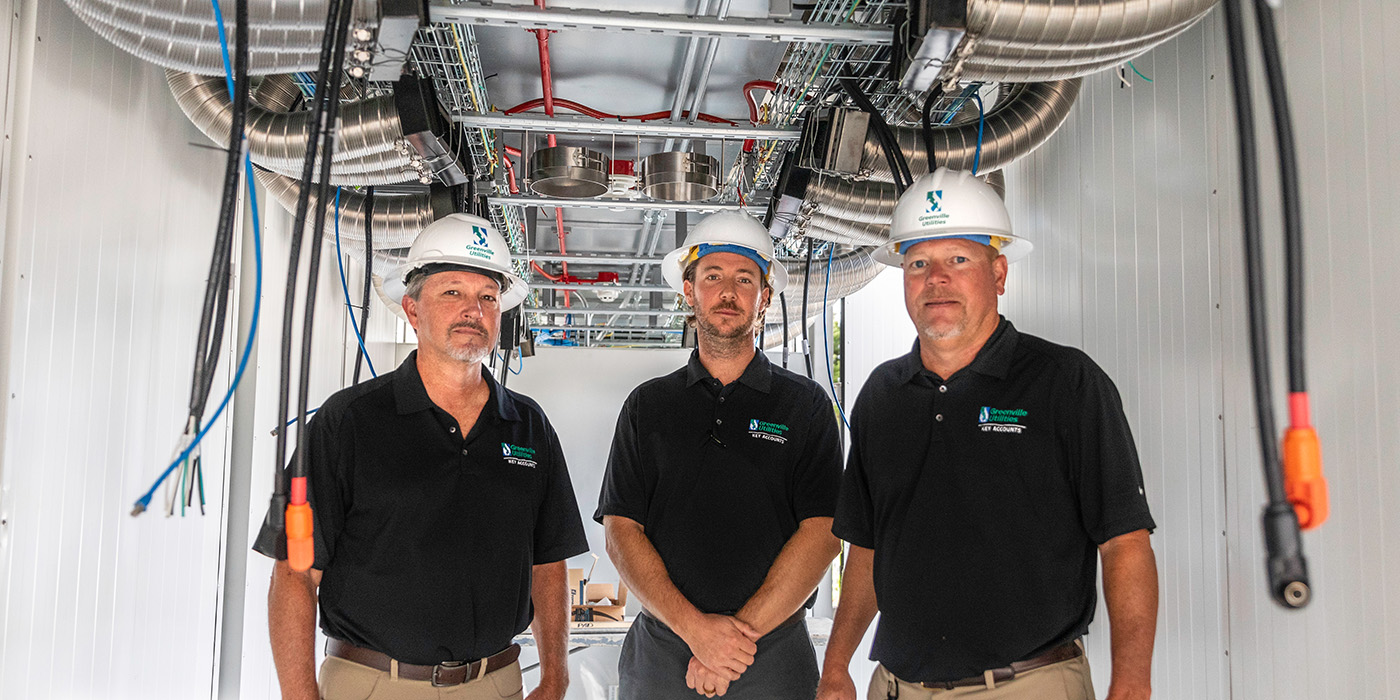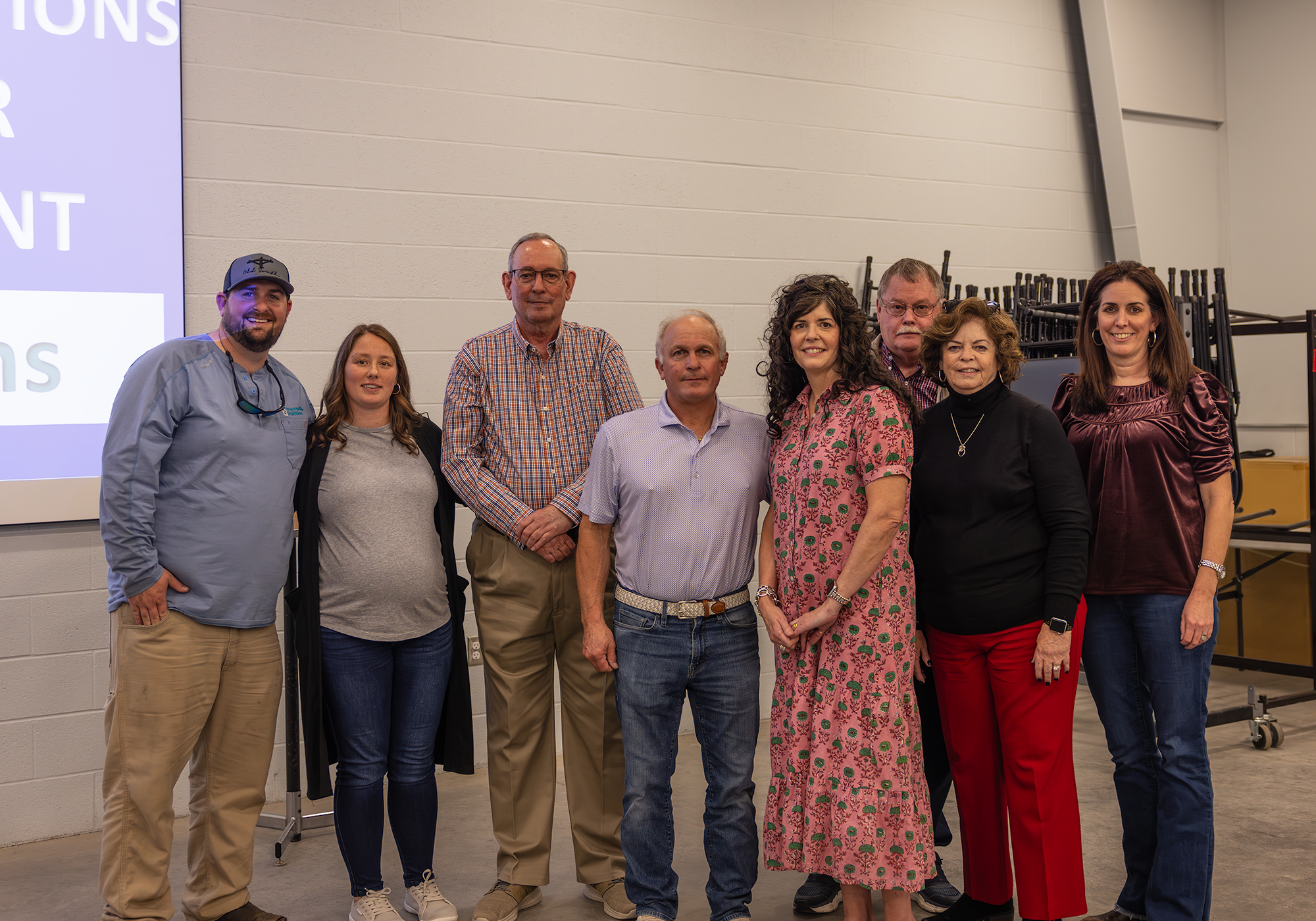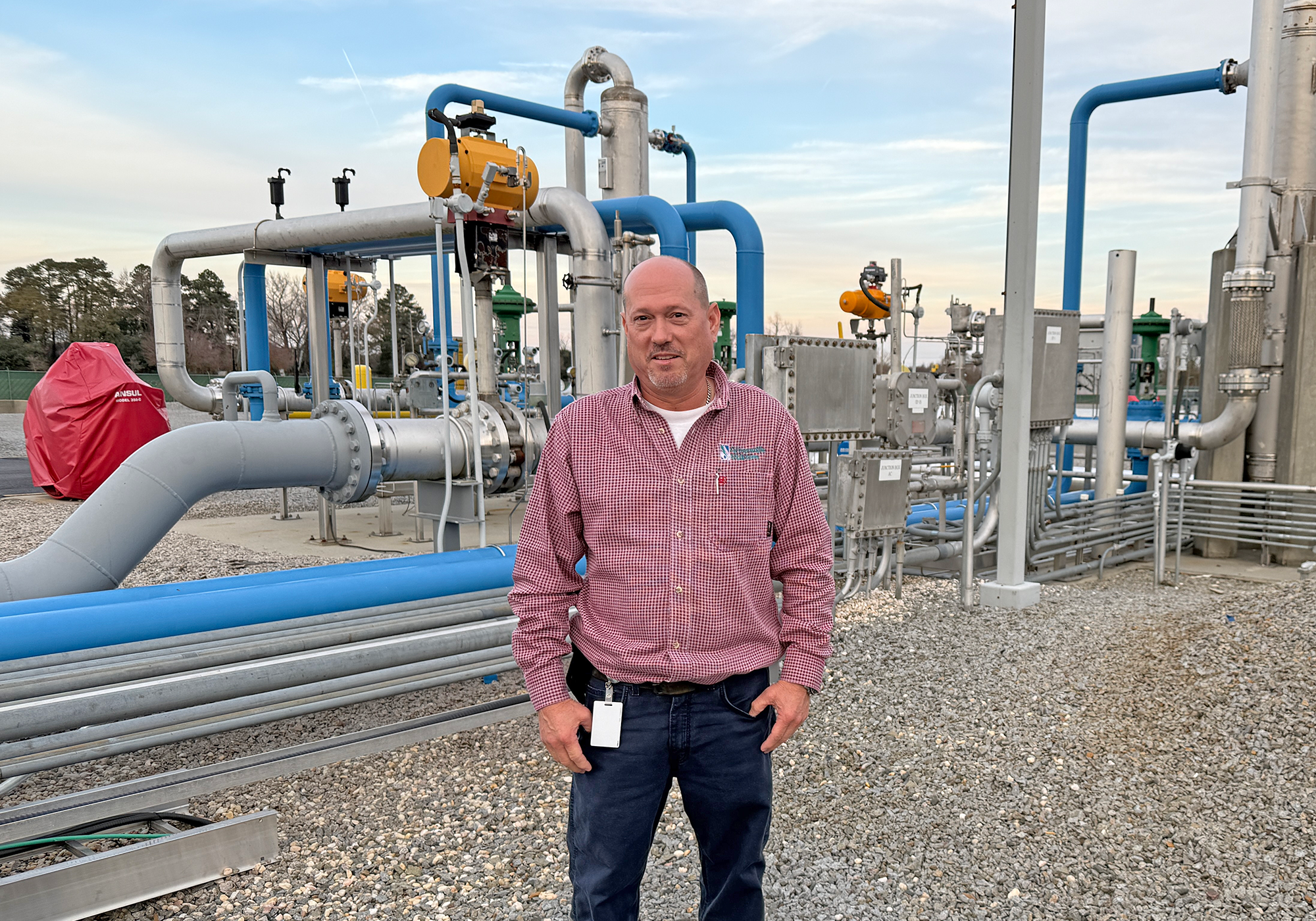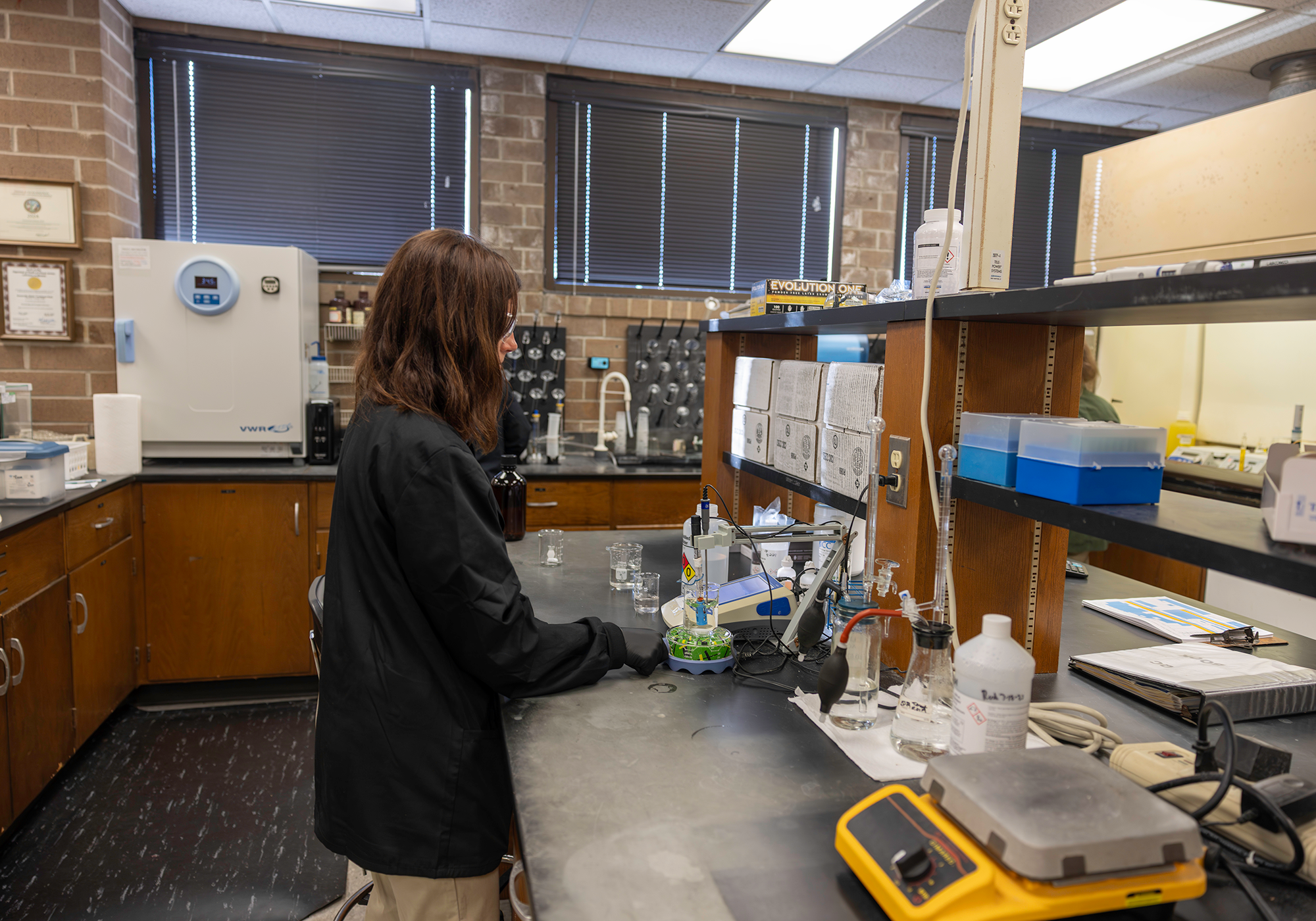
The Electric Department has made significant progress on a pilot project that will enhance GUC’s energy efficiency efforts to help us and our customers save money. In 2019, GUC received a $125,000 grant from the American Public Power Association’s (APPA) Demonstration of Energy & Efficiency Developments (DEED) program. The grant was for a peak-shaving battery energy storage pilot project to determine the technical and financial feasibility of installing Battery Energy Storage Systems (BESS) as part of our existing load management program.
A BESS system takes power from the grid during off-peak times and stores it in specialized batteries until we need to use it during peak times to avoid paying the higher peak rates. It’s another form of load management, something we’ve been doing for more than 40 years.
Load Management Program
In 1978, Greenville Utilities was one of the first public utilities in the nation to implement load management to lower the community’s cost of power. When GUC purchases electric power, we pay a premium rate for energy consumed during the peak hour each month. The peak occurs when customers use the greatest amount of electricity. About 50% of GUC’s cost of power is related to peak demand. By reducing the peak, GUC can hold down the cost of purchased wholesale power.
To reduce energy demand during peak periods, GUC operates both diesel-engine and natural gas peak-shaving generators at industrial and large customer sites as well as voluntarily installed radio-controlled switches for our residential load management program (Beat the Peak). The BESS pilot program will help the Electric Department determine the feasibility of installing future BESS systems in lieu of peak-shaving generators.
BESS and Load Management
Staff developed the technical specifications for the 1-megawatt (MW) BESS at the Evans Street substation. They also collected and analyzed all operational and financial data associated with the site to formulate a detailed financial analysis model. As an APPA DEED grant recipient, GUC also formatted the model in a way that it could be used by any public utility with a similar wholesale power cost structure. We remotely shared our initial analysis and findings at a recent APPA Engineering & Operations conference.
The project is ongoing and will continue to be evaluated for a year, but so far, so good! The system has been operational since November 2020, and is averaging a savings of $20,000 a month.
“We are very excited to evaluate this new and innovative technology,” said Kyle Brown, Planning Engineer. “It has great potential to save money for our customers.”






